#arigatoful
Text
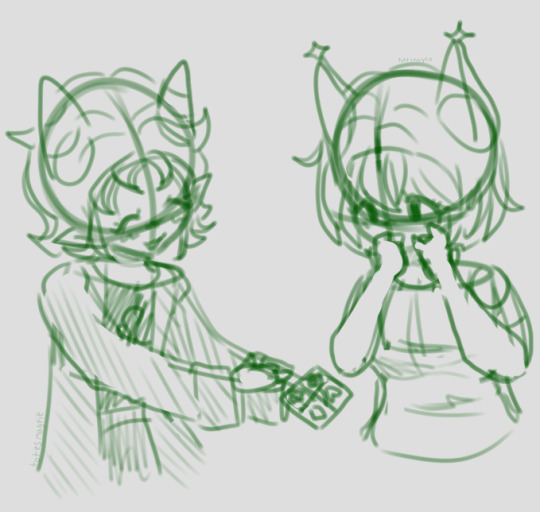
he;lo tomadochis!! ^_^ watasha haz been heard about a "homestuck" and wanted to do fanartz! this is raku chan an dnepeta chan interacting!! >u< sayonara tomadochis!!!
#homestuck#nepeta#nepeta leijon#nnsg#nyan neko sugar girls#kawaii#art#homestuck fanart#nnsg fanart#nepeta fanart#soz for it only being a sketch T_T its like 6 am and i don't want to do any coloring#^ ^#arigatoful#im sorry you guys had to find out I'm a homestuckie
8 notes
·
View notes
Text
sho haizono — morning warmth (one-shot)

you, who can not cook, attempts to prepare breakfast for sho. what could go wrong?
pairing: sho haizono / reader
tags: fluff, teasing sho to death lmfao
words: 811
[cross posted from ao3]

it was a perfect day albeit a little strange. sho was still sleeping when you woke up, and oddly enough, leo and alan were nowhere in sight. you turned to your right where sho laid sleeping and felt a smile creep up on your lips. he really wasn't one to sleep while it's dark out; he prefers to go to sleep when it's nearly dawn, when the sky is gradually turning blue from the pitch black darkness.
'he looks so peaceful.' you thought, eyes gazing over at his relaxed expression. he looks beautiful drowned by the blankets you cuddled under just last night. he looked so cozy that you couldn't dare wake him up. instead, you opted to lean in and place a chaste yet sincere kiss on his forehead before picking up after yourself to prepare for the morning.
a yawn and a stretch– with an invigorated burst, you started to wake yourself up and collect the ingredients to make breakfast in bed for sho. you weren't the very best at cooking yet with how much sho cooks for you, you thought it'd be best to give back to him somehow.
after weighing down your choices on what to prepare, you decided to settle with omelets. it's just an egg, right? how hard can it be?
alas, you're now on your fourth failed attempt of trying to shape the stubborn egg. who knew there were so many things to take into consideration? the heat of the pan, amount of oil, and even the egg mixture!
"oi, what're you doin' there?" sho's gruff voice snaps you back into reality as he stands by the door frame of the kitchen, scratching his head, and his expression in a deadpan. "you tryna cook for everyone in the dorm or what?"
though to others, he'd sound annoyed, you knew he was just confused. after all, you were looking panicked in the kitchen with four plates of failed omelet.
"i thought of cooking breakfast for you." you confessed since the cat's out of the bag anyway.
sho sighs and takes a step closer to you until you can feel him directly behind you, "what did i tell you? i said you don't ever have to cook with me around."
you'd laugh at sho's apprehension, finding his sleepy yet troubled mutterings adorable- though he'd never forgive you if you called him that!
"aww, i just wanted to cook for you." you replied, forming a little pout on your lips as you glanced back at him.
"fine, fine. if that's what you want." he nonchalantly caves in, maintaining his cool demeanor as he takes his place behind you.
he was close, too close though you'd never point it out knowing he'd be flustered and immediately back away. he was close enough for you to feel his breath by your hair and the warmth of his chest on your back. though sho, seemingly still sleepy, had other plans.
his hand held yours from behind; one guiding your grip on the pan, the other on the spatula as the egg on the pan started to form. his skilled hands holding yours guided you to shape the egg, telling you to manage the temperature of the stove as you basked in his warmth.
"woah, it didn't turn out shabby!" you exclaimed upon seeing him place the omelet on top of the rice you had prepared. "you're really good with your hands, huh?" you teased him all to see his flustered expression.
"you..." he grumbled under his breath, rolling his eyes. instead of continuing, he adeptly changes the topic, "sorry for sleeping in, you must've been looking for breakfast." he mutters a quick apology.
he's always so nice and it never fails to make your heart flutter or make your stomach do flips. you shook your head, clarifying the misunderstanding, "i wanted to cook for you since you're always cooking for me."
for once, sho was taken aback; he froze in his spot and his cheeks became dusted with red.
"you don't have to do that for me." he muttered under his breath, trying to deflect the affection he was feeling.
"but i still want to try since sho-kun is such an inspiration when cooking~" you decided to tease him a little more to coax out more of his flustered habits like averting his eyes or picking up his utensils before setting it down and picking it up again. every single detail was charming and so, so endearing to you.
"thanks, i guess..." he grumbles, looking away as if extremely aware of the reddening tips of his ears which makes you chuckle.
"i miss the times you called me senpai." you decided to throw in another jab to tease him which makes him grumble under his breath even more, forcing another hearty chuckle from you.
"hmph- fine," sho huffs, "arigato, senpai.”
#im not going insane right? i can hear his arigato senpai clearly lmao#sho haizono#shohei haizono#tokyo debunker#vagastrom#oneshot#fluff#x reader#sho haizono x reader
94 notes
·
View notes
Text

Louis wore an Axel Arigato Drew Knitted Vest in Off-White at the F1 Grand Prix in Monza, Italy.
This vest is an example of minimalism with contemporary design, showing a modern silhouette and custom panel knit.
#louis tomlinson#louis tomlinson fashion#ltf24#f1 grand prix#italy monza#2024.09.01#september 2024#axel arigato
79 notes
·
View notes
Text



Louis wearing Axel Arigato 'Drew' knitted vest with Casablanca Paris 'Tennis Club Icon Silk' shorts and Ray-Ban 'Hexagonal Flat Lenses' sunglasses at the Italian Grand Prix in Monza, Italy 1/9/24
via HLD Fashion
#louis fashion#axel arigato#casablanca paris#ray ban#sunglasses#he's had those sunnies for years now#I remember id'ing them for LTFA back in the day in like 2021#but these might be a different colourway..#louis#monza gp 2024#F1#01.09.24#styled by:#helen seamons#hld fashion#m
68 notes
·
View notes
Text


i want 2 boyfriends so i can dress them up like twins
111 notes
·
View notes
Text
『 Day 3: Elf 』
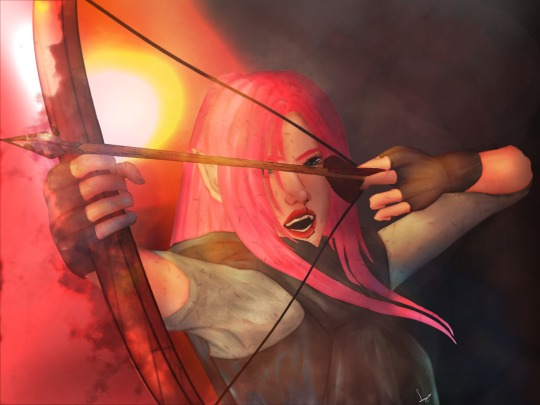
#sasuke uchiha#sakura haruno#sakura uchiha#sasusaku#naruto#sasuke retsuden#artists on tumblr#my art#digital art#illustration#digital painting#digitalpainting#digitaldrawing#narutoshippuden#digitalartist#digitalart#arigato#shippuden sasusaku#sakura#fanart#boruto#sakura week 2024
99 notes
·
View notes
Text













Lot of chiral graphics!!!! sauces: 1 | 2 | 3 | 4 | 5 | 6
#having a very fun web surfing adventure if you can tell. chiral is spoiling me with all these web graphics im so arigatoful#yaoi#nitro+chiral#togainu no chi#lamento beyond the void#web graphics#web stuffs ✧
284 notes
·
View notes
Text

76 notes
·
View notes
Text

Thanks for following! It's surreal seeing the growth here since I've posted art on tumblr for years and March 2023 is when I first hit 50k, now just a little over a year later and it's 100k. To celebrate I'll start posting a series of animations I've wanted to do for a while, but couldn't find the time for it. I feel 100k is definitely worth celebrating.
Thanks again!
107 notes
·
View notes
Text
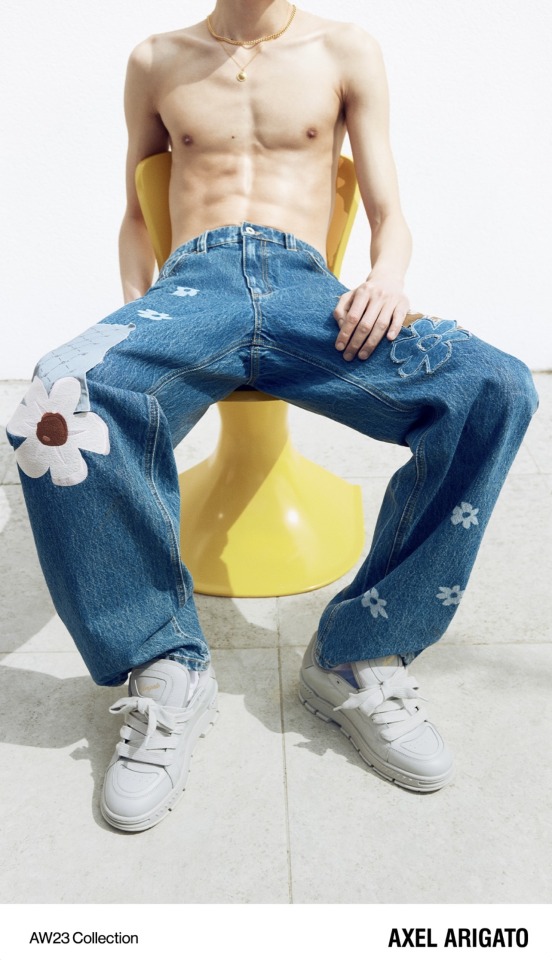
Axel Arigato AW23 Collection
234 notes
·
View notes
Text


dunno tbh
#domo arigato mr roboto#i think that goofy little song fits enoch a lot lmao#i need to figure out how to draw sholmes because hes my second favorite right next to epoxy 🩶🩶🩶#shit i draw#the great ace attorney#tgaa#dai gyakuten saiban#enochposting#enoch drebber#herlock sholmes#these dont look as great but im tired as hell so
28 notes
·
View notes
Text






Notting Hill Carnival 2024
#35mm#35mm film#axel arigato#black girl aesthetic#photography#y2k#nottingham#notting hill#notting hill carnival#nottinghillcarnival2024#nhc#carnival#black couples#ethiopian#ethiopia#habesha#african#west african#east african#fashion#foryou#makeup#black beauty#natural hair#black girl magic#black girl moodboard#black girl luxury#black feminism#black girls rock#black is beautiful
22 notes
·
View notes
Text

Louis wore Axel Arigato Marathon Runner Sneakers in White/Cremino at the F1 Italian Grand Prix in Monza, Italy.
The low-top sneakers Marathon Runner Cremino by Axel Arigato perfectly complete every sporty look.
#louis tomlinson#louis tomlinson fashion#fashionlouist#louis fashion#ltf24#shoes#axel arigato#september 2024#2024.09.01#italy monza#f1 grand prix
40 notes
·
View notes
Text
Dissociative Identity Disorder in Mr. Robot
So I have been writing little essays about Mr. Robot recently.
Dom's Sexuality, Gay Marriage and Whiterose
Back to the Future and Brainwashing
Today I wish to talk about the DID representation in Mr. Robot.
Actually I want to talk about the DID representation in the Hulk comics but there are 40 years worth of storylines involving it and it would require me to write about clinical understandings from the 1980s when it was called MPD (admitedly Mr. Robot's stumbles at the finish line with some of these same outdated treatment models) and that would take a while. Suffice to say it will happen eventually*. I shall make a new tag "Media Myself and I" and post it under that when I have more time to do it justice. Maybe I'll do others. I am uncertain. I believe I want to focus on positive depictions where there are no murder alters. The goal is to get people to want to enjoy things, not to steer them away. I have a few shows and games in mind at the very least.
Regardless… Mr. Robot is an easier topic to cover and is my hyperfocus of the moment.
So Mr. Robot is a show about isolation in the modern world. It's a show about socioeconomic stress, late-stage capitalism and what it means to enact meaningful change on a broken world.
But above all it is about the healing journey of Elliot Alderson, a man with dissociative identity disorder.
I say that at the start because Elliot's condition is never named until the final episode. In many ways a realistic depiction of a real world disorder was an afterthought noted in the final hour of the journey as a means of justifying the split personality trope and hiding a final twist. In spite of that the roadmap for the show was always leading to this destination and along the way they managed to get some fairly good representation out of the mix.
Season 2 even involves the only time I have ever seen a piece of fiction depict "blending" on screen. Blending isn't a symptom listed in either DSM or ICD manuals. It is, however, something one would hear about if they had a conversation with someone who had DID. I have used that scene to depict what it feels like to my partners.
I'm getting ahead of myself.
I love Mr. Robot. It is currently my favorite show of all time. If you have never seen it then please give it a shot. This post will be spoiler heavy and I'd hate to rob anyone the opportunity to watch S4E7 and have a pure emotional reaction to it. The show is on Amazon Prime and the full box set is available for $35-50 depending on format and vendor.
Go with my blessing.
-
The first season of the show begins with Elliot Alderson (Rami Malek) living a double life. By day a cyber security expert and by night he spends his time at his computer hacking people's accounts and satisfying a "little itch in the back of his head" that guides him to uncover the murky facts about people. The first scene of the show has him take down a cafe owner who hosts an illegal and deeply unpleasant website. I have seen individuals walk away from the first episode thinking that the show is "Dexter but with computers" but it is more lulsec activism with a Fight Club aesthetic.
The show has 4 seasons and each season depicts a different stage of Elliot's healing journey and with it completely different rules and depictions of his condition. I'll break down each season for what they do right and what they do wrong.
Season 1: Discovery
Elliot's system in season one is undiscovered but he has overt symptoms, meaning he is unaware that he has any alters but he suffers from clean breaks in his consciousness and drastically altered behavior patterns both which are a detriment to the "hidden" nature of the condition.
Commonly most people do not discover their condition until their 30s. I was 37/38 when our therapist started guiding us towards accepting our condition.
DID manifests in childhood but it's a hidden illness that does its best to go undetected. The point of the condition is to remain hidden. The internet and the educational resources it offers are helping younger individuals to recognize their symptoms and advocate for themselves at an earlier age but the standard medical understanding is that most people are developed adults before they are diagnosed.
Published statistics for DID indicate the global population of those with the condition is about 1.5% (some organizations argue the number should be higher due to how difficult it is to receive an accurate diagnosis, but 1.5% is the most consistent figure) which is rare but not to the point of never encountering it. For comparison, according to a 2023 census 1.0% of people in the USA identify as transgender. There are no tested classifications for Covert vs Overt display of symptoms but it is widely agreed that an overwhelming majority of cases within the 1.5% are covert.
We learn that Elliot is desperately lonely, abuses morphine and has paranoid delusions about men in black stalking his every move. Whenever Elliot is on screen we can never be sure what is real and what isn't, so there are times when men wearing black suits are on screen and we cannot be sure if Elliot is paranoid or delusional.
The show takes place through his perspective after all and we are a character in the show.
See… the narrative device of the show involves Elliot speaking to "friend", us. The audience. "Hello, friend." is a common refrain spoken throughout the show. The narrative begins a short while after Elliot had a complete mental breakdown and smashed up a server room, he is seeing a court appointed therapist, is socially paralyzed to the point of which we see him linger outside a birthday party and retreat home to cry in loneliness.
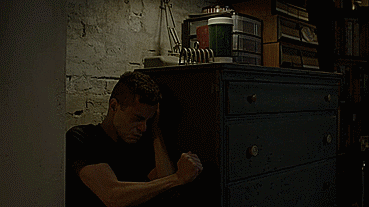
The entire first season Mr. Robot is depicted as another character, akin to Tyler Durden, a wild revolutionary who wants to encrypt the data of the world's largest bank in order to seal the debt records and reset everything back to 0. He starts off appearing in scenes involving the men in black stalking Elliot to mingle him in with the paranoid delusions and eventually begins interacting with him in earnest. Though the reveal is treated as a twist 8 episodes into the show Elliot does accuse the audience of knowing the entire time and he refuses to speak to us for some time, even going as far as to keep secrets from us because he cannot trust us any longer.
It's at this point that I will note that media depictions of DID tend to lean heavily on the phrase "it's a visual medium" and depict ways that characters can see, interact with and communicate with alters/parts in a dramatic setting. Off the top of my head Hulk is about the only form of fiction I've seen where the temptation to do this doesn't take over and even then the old "other face in the mirror" trope shows up there.
So for what it's worth the paranoid thinking and hallucinations are not DID symptoms and typically a person with the condition cannot see or hear their alters. In fact a testing criteria included in the MID exam is to rule out schizophrenia by eliminating the possibility that the voices heard are external or that any hallucinations exist. In Mr. Robot they are likely caused by Elliot's morphine addiction, but he gets clean after season 1 and Mr. Robot is always there.
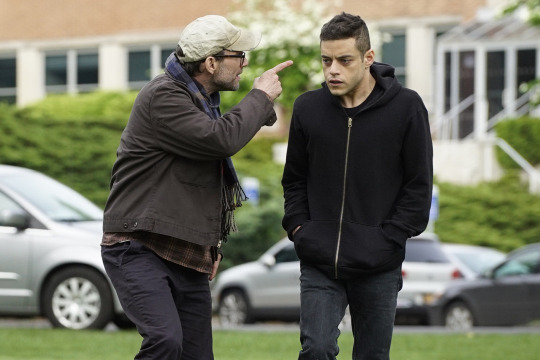
There are some plot elements which I want to talk about but they do spoil the final "twist" of the show. So I want to warn again that anyone in the process of watching should be warned we are getting into entire show spoiler territory.
The Elliot we see in the show is the result of the stress fueled breakdown that Mr. Alderson had 6 months prior to the show starting. The timeline is fuzzy in my head but there were two triggers which set him off and began his condition flaring up (and/or caused him to lean harder into his drug addiction which in turn fueled his condition). The one we know about is that he was locked in a server room and forced to work long into the night on an issue and the already upset and stressed Elliot snapped and had a black-out.
We come to learn that he has had these his whole life but this is the first time such an incident occurred that he couldn't self-justify what had happened. He smashed up a server room, something he felt himself not capable of.
But the second trigger is the more important one.
His sister, Darlene, moved to NYC and started visiting him.

The bigger and better twist of season 1 is that Elliot and Darlene are siblings. This is hidden from Elliot and the audience for the first 7 episodes and her presence is treated much like Marla Singer from Fight Club, of whom she likely contains some inspiration, where she keeps showing up in Elliot's apartment and acting overly familiar with him.
In the earliest episodes when we are learning about Elliot's lonely life he looks at a photograph of himself and his mother at Coney Island. Due to some hallucinations we know that Magda is an abusive mother and screamed at/hit Elliot a lot. We learn more about her in future episodes and she is a truly horrible parent. Likely more than was ever depicted in the show.
The photo is actually of the full Alderson family including Darlene and Edward but is not shown as such until the reveals that Darlene is Elliot's sister and Mr. Robot is modeled after Elliot's father. The photograph is a reference to Back to the Future.
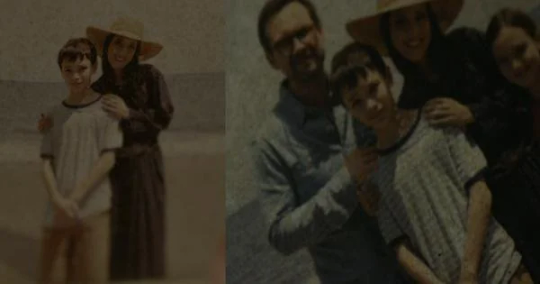
But it also is a fairly good visual representation of self-filtering information, even when it is contradictory in nature. This is common not just in DID but in all forms of CPTSD.
Complex Post-Traumatic Stress Disorder is a condition that develops during prolonged exposure to trauma and makes radical changes to the nervous system. CPTSD is considered a root of DID and it is universal for those diagnosed with DID to have a CPTSD diagnosis also.
One of the ways CPTSD symptoms manifest is "Emotional Avoidance". The nervous system is activated when triggers related to the trauma exist within the person's life. In order to function their brains push away these reminders and naturally avoid interacting with them. This causes those with the condition to become withdrawn, to isolate and to have distorted and often contradicting patterns of thought. For instance Elliot needs connection and safety that he associates with family but his family were his primary abusers and so he edits his memories to focus on positive associations such as a family trip to Coney Island that has become an obsession to him in adulthood. We later learn that Elliot's obsession with movies was born from it being his primary way of connecting with his father... which is fairly relatable.
His positive memories of his parents are held in high regard even though we know that his father "pushed him out of a window" and his mother used to put out cigarette butts on Darlene, tried to force her to commit animal cruelty and is often depicted in hallucinations as beating and screaming at Elliot.
In a case where it is impossible to avoid the traumatic trigger, for instance the return of relative who is a living reminder of his abusive childhood, the individual may begin to dissociate. Dissociation being where a person, overwhelmed by what they are experiencing has a separation from their normal state leading to a disconnect from emotions, sense of self and reality.
Episode 8 in particular contains a visual depiction of it when Elliot is having a quiet meltdown over finding out he has a 2 day deadline and his boss at work has known about the server exploit he installed all along.

(the show often uses the camera in ways to emphasize emotional walls, dissociation and isolation like this. This sequence does so by having hard cuts, shaky cam and frantic pace melt into a gliding slow lull where the background noise filters out and we can share in Elliot's distance from his situation for a moment)
Elliot's form of blocking out is extreme but has half a foot in reality (and half a foot in the logic born from the "twist" ending) in that in order to continue interacting with Darlene he views her as a member of Fsociety and edits out their connection until it is revealed in episode 7.
A small brilliancy about Fsociety is that the entire group is formed around Elliot and Darlene's need for childhood safety. The hacking elements of the show undoubtedly born from 9 year old Elliot spending time at Mr. Robot computer repair with a smile. The anon-mask that the show uses comes from an in-universe movie that Darlene and Elliot watched every Halloween and their base of operations is Coney Island. A place that both siblings seem to associate with safety and happiness...
Which is extra messed up when you factor Season 2's revelation that Darlene was kidnapped while on a family trip to Coney Island.
Darlene's panic attacks, need to feel special and her abusive upbringing are not the topic for this essay, but I wanted to make mention that Magda was such a horrible mother that a 4/5 year old Darlene thinks of being kidnapped from a family trip to Coney Island as one of her most precious childhood memories.
The desire to reach into the past and change things to create an ideal future is a heavy theme of the show and I feel it's important to note that though the Alderson siblings reject Whiterose and her scheme, they are both living in an almost literal fun house distortion of the few unambiguously GOOD childhood memories that they each have and have wrapped them around themselves like a protective blanket.
The plot of season 1 gets a lot more uncomfortable when you realize how much of Fsociety is two traumatized kids recreating positive elements of their childhood and trying to live inside of those memories while lashing out at those who took their father away from them. The entire plan is centered around events from 1995. The show takes place in 2015.
Mr. Robot himself is, of course, the ultimate symbol of that take on events.
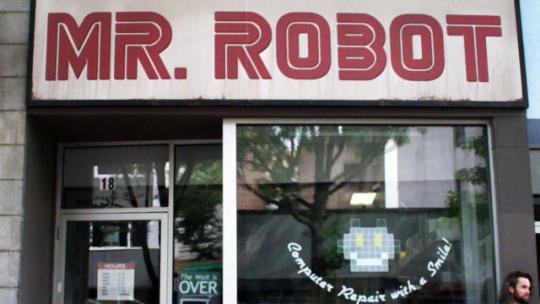
Edward Alderson was a monster. He's referred to as such overtly in Elliot's detox fever dream. Everyone asks him who his "monster" is while handing him the key that we learn was to his childhood bedroom. A key that he hid to prevent Edward from entering his room late at night.
Yet throughout the first 3 seasons of the show we are only shown him in context of the positive memories that he and Elliot shared. Elliot was 9 years old when Edward passed away from leukemia.
At a point, Elliot is picked up from school. He has a bruise on his cheek and the scene begins with Edward asking "If I had to guess, you didn't tell Principal Howard your side.", assuring him it's okay to share his side of the story. Because Edward is convincing him to tell his side I am going to assume Elliot got into a fight but it's not impossible to assume that the school pulled Edward in to discuss the signs of physical abuse on the child. Edward would never tell Elliot to tell his side of that story so I assume it was a fight.
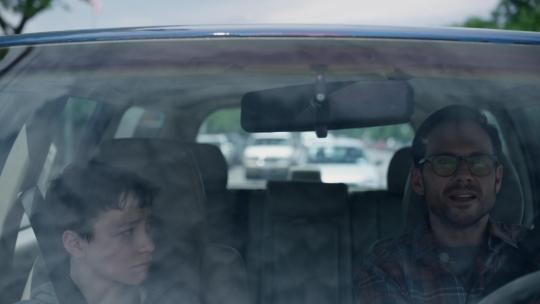
It's unclear if Mr. Robot is the one who participated in those fights (we only have 2 confirmed instances of Elliot's alters showing up in childhood. The window incident and the day Edward died) but Edward picks him up and protects him from his mother's wrath and bonds with him during that drive, he reveals his diagnosis to Elliot before inviting him to work with him at the computer repair store. Likely this is what leads to Elliot's hacker skills being born.
A hauntingly similar event in my own life is why I am a photographer.
Given that the majority of Season 1 has Elliot in the dark about his condition we are only given context as to why he is the way he is and see the display of dissociative symptoms which manifest from CPTSD. Mr. Robot existing at all is actually not required for this to be a good depiction of adults who grew up in abusive environments and the way they maladaptively cope.
I also want to give a little praise to the "itch at the back of [Elliot's] head" that shows up when he feels the desire to hack someone or dig deeper and the way he pushes forward with his own will until he calms down enough to let a creeping hesitation overcome him and prevent him from acting.
Passive Influence is part of DID. It's a situation where a "fronting" (that is to say part that is in control at a time) performs an unthinking action or is emotionally swayed by the influence of another part/alter that is not presently conscious. These are one of the biggest ways that the condition flies under the radar for many. When they are close to discovering proof of their condition they will often feel an unconscious push away from it. The phenomenon is fairly easily brushed aside internally as "a gut feeling" or an "impulse" but it's observable under the right conditions.
An instance I can think of in my own life is when our survival part is trying to push people away and our emotional part desperately tries to reach out. I will often find my hand grabbing a person's wrist and clinging tightly to it without even noticing that I've done it.
In the show Elliot is compelled by Mr. Robot when he feels someone is a danger or has a weakness that can be exploited. Part of him knows he needs to do something about it and so he lets himself be guided.
The season ends with The 5/9 Hack succeeding, all the financial data being encrypted and Elliot sent to prison for (minor) hacking charges.
He knows who Mr. Robot is now and he fears him as his enemy.
Season 2 (and the book): Exploration
The first 8 episodes of Season 2 are a filter for those watching the show, many drop off. Personally I love it but I can see why it's not for everyone. Season 2 is much slower than the first and Elliot is in prison for those 8 episodes. He's also imagining that prison is his mother's house.
That daydreaming coping mechanism is largely there to add a fairly unearned sense of mystery to a character development season and make things a little more visually interesting. For the most part I don't really want to focus too much on it or the way Elliot treats "us"/"friend".
The fact is that for this season Mr. Robot and Elliot are in direct conflict but they are feeling out their landscape and trying to find common ground. They are pulling in different directions but they are reacting and responding to one another. The show uses a chess match as a visual symbol of this and in such they are keeping one another in a constant state of check. They are opposed to one another but they are communicating and working things out.
So let's start by looking at the book. The book is a recreation of the in-universe journal that Elliot keeps while he is in prison. We see him writing in it during the show and the entire thing is available, it even includes little ARG elements to let you decode the messages Mr. Robot is receiving from The Dark Army.
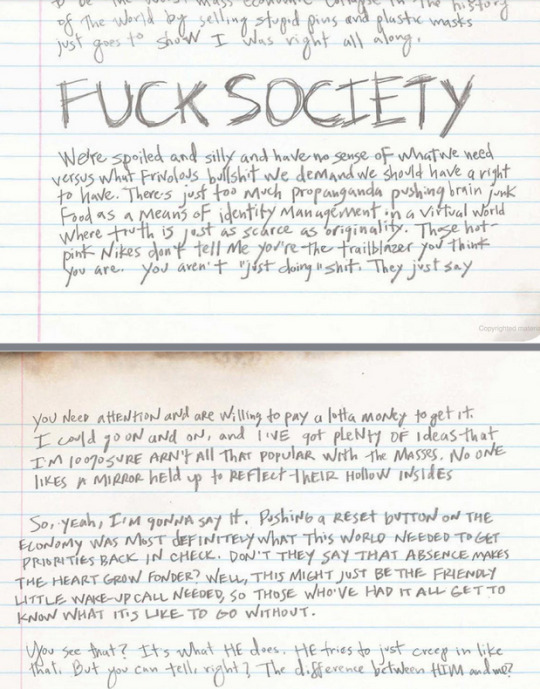
The book is detailed like this and it's possible to note when Elliot's handwriting turns into Mr. Robot's handwriting. There are even points where there is "blended" handwriting. It's easy to spot in the above image because Mr. Robot writes with a heavy hand and in all caps where Elliot is soft and uses lower case, in the top line of the second page "you NeeD atteNtioN aNd aRe Willing to pay a lotta MoNey to get it." you can see Elliot slipping from one headspace to another while becoming upset at society.
Even still if you look above the FUCK SOCIETY image you see Elliot's calmer handwriting as clear and flowing.
When we were in denial of our condition we poured through journal after journal and chatlog after chatlog hunting for evidence to prove or disprove the theory.
It was when I looked at our old gaming journals (we took notes in pen/pencil live during TTRPG sessions because memory issues are gonna memory issues) that we noticed similar. Cursive used in some phrases, individual letters separate on another, the letters g and y getting curled at times and not at other times.
Subtler than what is displayed above but no less real.
Season 2 introduces us to Ray the warden brilliantly played by Craig Robinson. He empathizes with Elliot because he speaks to his dead wife as a means of coping with grief and assumes that Elliot is the same.
He offers Elliot guidance by asking him to play chess "against himself" and this leads to Elliot and Mr. Robot playing endless games of stalemate against one another with deletion on the line for the loser. It's the same brain and neither side wants to lose (nor do they truly want to win, Elliot admits as much in Season 3 that he likes having Mr. Robot and misses him when he's not around) and as noted above with passive influence, the games are always guided to end in a stalemate because no matter how opposed they are as forces, they both want the same things.
So... how about the Sitcom episode?
Elliot breaks his promise to Ray and looks at the website that he is tasked with doing tech support on. It's--- not good.
Ray uses a combination of crooked cops and convicted Neo-Nazis to have Elliot beaten into submission so he won't report what he saw. Elliot cannot handle this and has a mental break and wakes up in a 90s 4 camera sitcom world.

Alf is there. Because old episodes of Alf are playing in the medical ward at the time Elliot is being treated for his wounds.
The entire time he is taking a beating Mr. Robot is protecting Elliot by fronting and forcing him into an inner-world fantasy.
Okay... so Inner-Worlds.
In the show we actually had one of these in Season 1 during the detox trip but I want to talk about it now and round back and talk more in Season 4.
Inner-Worlds are a thing within DID treatment. Emphasis on the word treatment. It's one of the more commonly misunderstood things within discussion on the condition because it's regularly reported as part of the experiences within those who are diagnosed with DID but it's important to know that the existence of the diagnosis indicates the existence of treatment.
During any adapted 3 or 4 phase trauma treatment program that includes parts work, whether this be Internal Family Systems model which is used for individuals who do not have DID or system mapping and stabilization for those who do, the patient must work on creating a "meeting" space to visualize (or sense out emotionally for those with aphantasia) and much of the work of developing safety and structure within comes from filling that space with comforts and generating communication between parts.
I'll talk more on the "conference table" in Season 4.
It is possible for those not going through therapy to create one outside of the context of a therapeutic alliance but the creation of one is an intentional act. Not something that comes free with your childhood trauma.
Elliot's trip to the inner-world keeps him from experiencing any of the beating that the body is receiving and at the end Mr. Robot earnestly says he only wanted to take the punches for Elliot, nothing more. Elliot falls against him, tearful and whimpers out "Thank you" before we are given the flashback of the day Edward picked up 9 year old Elliot from school after the fight and confesses his leukemia.
For the record, my heart swells every time I see Mr. Robot acting as a protector.
So, let's talk S2E9 and the "blending" incident.
Blending is what happens when two parts/alters are co-conscious and are present enough that they are sharing control of the body. It's an uncomfortable experience. Co-Consciousness means that more than one part/alter is actively perceiving the world at any given time.
It's more complicated than binary yes/no. Every one of these experiences exists on a spectrum and no two people with the condition experience it quite the same way but there are levels of presence that one has.
The following is me talking more from anecdotes and personal experience than textbooks. I like to be clear when I'm not being academic because I do not want to spread misinformation in my arbitrary analysis of TV shows that will get 20 notes on Tumblr Dot Com.
Front is to be driving the body, to have your inner monologue playing (if you have one, most people do, but it's not a given) and have your emotions interact with the nervous system if you are grounded enough to feel your experiences. As I said, it's a spectrum. Everyone gets dissociated at times and can just go into auto-pilot or a trance. That all still counts as being in front.
To be conscious but not front is to exist in an emotionally reactive state. If Fronting is driving then co-consciousness is to be in the passenger seat.
It's truly difficult to describe and my therapist doesn't even fully comprehend it despite her being the one who educates me on these topics. Presently as I type this I can only feel one of our system (5 parts) active and "with" me right now. She's not speaking but she's reacting. I can feel her apprehension to us typing this much about our personal life, little flits of paranoid thinking that we'll get anon-hate or that people from our former life will see this and judge us. It's a presence and exists on a gradient. She's "awake" right now but I do not consider her fully "co-con" because if I asked her to tell me what she thinks about this sentence I can feel an emotional reaction (apprehension) but not a direct answer akin to "I think you should edit out references to our journal and focus on talking about the show" (which is what I imagine she would say right now). That's the spectrum.
Closer to the front a part/alter is the more direct communication happens.
There's also "asleep" and "dormant" when they are unresponsive. Pretty self explanatory. Elliot's system has 5 parts(plus "friend") and until Season 4 we only really see Mr. Robot and the main character version of Elliot. Magda and Young Elliot show up in hallucinations in Season 1 and Young Elliot is co-con in Season 4. Magda never shows up outside of emotional flashbacks and the inner-world.
So after Elliot and Mr. Robot combine forces (though Mr. Robot is still working with the Dark Army and is trying to move in secret) they have moments where they rapidly switch and cannot keep straight who is fronting at any given time.
There's a scene where Elliot is in another room thinking to "friend" when he hears an argument in the next room and realizes Mr. Robot is in the argument. As he walks in, Mr. Robot is surprised to see that Elliot is aware when he is fronting and he trails off and they switch.
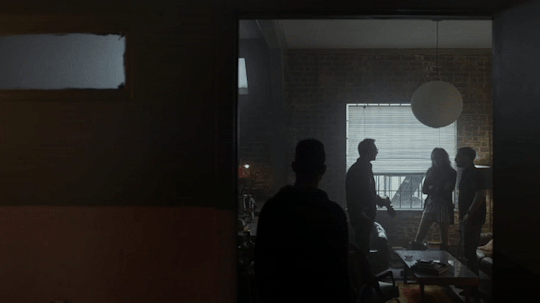
Mr. Robot says that something feels off about how they are acting and that they feel like they're overheating.
A later scene depicts Elliot phasing out mid-conversation on the subway and picturing himself in the next car observing Mr. Robot talking to Cisco while a passenger plays erratic music on a keyboard.
That is such a horrifyingly accurate depiction of something we live with that I was stunned to see it on screen. I've included it in some of my stories that go over living with these experiences but the idea is when we are stressed out, can't keep our head straight and are blended like this we tend to have snippets of music playing over and over in our head. We also get what I refer to as "static" and that seems to be relatable in support groups.
A++ for the show depicting something about the DID experience that simply does not get spoken about outside of the spaces of people dealing with it. It was the moment I knew they actually spoke to people who experience this stuff and did proper research that wasn't just media depictions and medical textbooks.
The final part of Season 2's wild ride I want to talk about is the "lucid dreaming" bit.
Mind awake. Body asleep. Mind awake. Body asleep.
This again goes into Overt DID which I cannot comment on as much as covert depictions but the idea is that Elliot trains himself to remain awake when Mr. Robot takes over. We have seen from the blending experience that he is starting to remain when Mr. Robot is active and so he tries to force himself to stay when Mr. Robot is active.
In therapy this would be achieved through trust, communication and awareness. It's said in communities that systems tend to become more overt as they go through treatment as they are able to identify lines, parts can advocate for themselves and there's better understanding of what "self" means for every alter.
In my experience there's also an element of trying to pretend to be consistent and whole. We were coming out transgender when our therapist guided us towards DID diagnosis and there was a lot of tearing ourselves apart because we needed to act in a certain way for our safety and inability to do so put us at risk of being targeted. In accepting our system we have stopped trying to be the same individual and that has lead to a more overt presentation. As I tell my therapist "we need to act out our gender expression anyway. Every action we take is a performance."
That is to say, Mr. Robot has never attempted to maintain the illusion that he is Elliot Alderson (albeit he never identifies himself. He's even surprised to learn that Elliot calls him that) and Elliot doesn't even know he is "The Mastermind".
In opting to remain hidden and conscious he gains a greater degree of control and agency in his situation.
These things get easier as you learn your condition, build system trust and allow yourself to experience that which you feel comfortable experiencing. With the example of the beating earlier, Mr. Robot shut Elliot out and took the beating for him and Elliot resisted but ultimately did not want to be present. In this episode he learns that if he wishes he could have pushed through and been there and experienced everything, albeit as a passenger rather than the driver.
Therapy also teaches how to "go into the back room" to maintain stability. A technique that lets you volunteer to not be involved in a situation. My system all use this whenever I (Dawn) perform erotic intimacy of any kind. They cannot handle the thought of associating with those acts and prior to treatment it would emotionally disregulate our nervous system if parts that couldn't handle the concept were to be present during those moments because parts of me would be trying to dissociate while I am trying to act. It would either trigger a switch, cause blending or make a part shut down and become unresponsive for a large period of time- one of our partners actually discovered our system this way. She saw us shut down during a scene and realized it wasn't just a "mood swing" as we had insisted.
Elliot learns how to intentionally open up and be present when Mr. Robot is active and because Plot happens he is shot and decides to use this skill to close himself off and create a stronger divide between parts.
Season 3: Rejection
If Season 2 was the pair working things out on a chess match where they keep one another in check then Season 3 is after Elliot has tossed the board and decided to shut Mr. Robot out completely.
The arc words are "battling in our own voids", in Season 1 Mr. Robot was always aware of what Elliot was doing but Elliot was unaware of Mr. Robot's actions and in Season 2 they were fairly co-conscious to the point of overheating. Season 3 the connection is shut down. Mr. Robot has no concept of what Elliot is doing and Elliot no concept of what Mr. Robot is doing.
This goes back to the Overt/Covert thing mentioned at the start. It's a rare thing even within a rare disorder to have that level of amnesia barriers between parts and so I can't really comment on accuracy. It's a frustrating season for me in that regard because Season 2 was doing so well at depicting something that I have lived through that going back to Fight Club tropes was fairly disappointing to me.
Season 3 is great by the way. It's a debate on if 3 or 4 is the best but it's close enough that there is a debate.
The real meat of the discussion, spare for the events of the final episode where they reconcile, is in how other people treat them and talk about their condition.
Angela Moss is Elliot's childhood best friend and also lost a parent to the disaster that claimed Edward Alderson's life. She discovered Elliot's condition during his breakdown in S1E8 and was brainwashed by the show villain Whiterose in S2E11 (I have a write-up of the psychological principals at play with the brainwashing here).
In Season 3 she acts as Elliot/Mr. Robot's handler and is responsible for helping Mr. Robot continue his hacktivist terrorism without Elliot finding out. She betrays Elliot and exploits his condition. She also tells people about it without his knowledge or consent, which is pretty fucking monstrous in my eyes.
Don't out a person. Just don't do it.
When Mr. Robot asks how she can tell who she's talking to she responds "Your eyes. You're never trying to look away." which is accurate enough that I messaged my girlfriend to be sappy and grateful towards her as the first time she noticed our condition she told me it was our eyes.
From a 2022 IM chat, shared with permission:
"it's ... well, it's [...] your eyes soften, kind of, when going to Cammie. Dawn has this piercing gaze, like she's looking right into my heart and soul. Camden is just very alert, noticing so many things but not the level of piercing. Cammie... her gaze is softer. More focused, but in a ... drinking everything in, rather than seeking it out sort of way"
and added today when I asked for permission to share the quote:
"(for the record, Craig draws his eyebrows down in a particular way that makes his gaze intense in a good way)"
The show works as hard as it can to never let the audience wonder who they are seeing on screen at any time. Most scenes where Rami Malek is depicting Mr. Robot it is a brief perspective view to remind us what the other characters are seeing before switching back to Christian Slater playing the character. There are a few scenes which involve Rami playing the character for a full sequence. One is the context for a flashback where we see a scene Slater performed through another character's eyes where they see Malek.
The others usually involve us being in Darlene's perspective to highlight her unease and uncertainty of what is happening with her brother.
The only scene where it is ever treated as a surprise is when Darlene plants a bug on Elliot's computer while staying overnight and is roughly interrogated by "Elliot", only to realize midway through the conversation "Jesus. It's you".
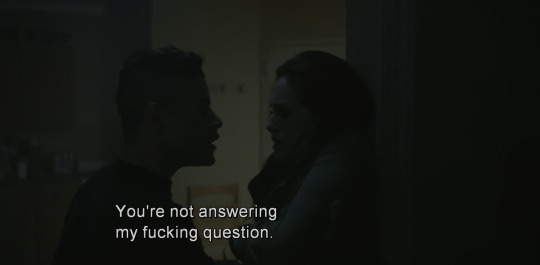
The camera cuts back to reveal it has been Mr. Robot the entire scene. They avoid that trick throughout the show so it has large impact when it actually happens.
I feel like that scene (as well as the scene where Elliot wears the real Mr. Robot jacket and gives birth to the 2 Stage plan to take down Evil Corp) are important for reminding that no matter how differently Malek and Slater play their roles, to an outside observer they are the same person and when he acts "out of character" it could easily just be an emotional outburst.
Incidentally you can see the physicality of the acting if you go back and watch it again.
The end of the season has Elliot, betrayed, alone and terrified for the safety of his sister; finally reach out to Mr. Robot and open a dialogue.
He even goes out of his way to have this discussion on the Ferris Wheel at Coney Island both as a Season 1 callback and as a sign of trust. Elliot admits in this conversation that he missed Mr. Robot while he shut him out and wants him to be part of his life and in the season finale Mr. Robot says that he wants the two of them to keep talking.
Elliot also finds out that the window incident wasn't his dad pushing him out of a window. They jumped. Elliot asks in a kind and soft way to Mr. Robot, representing both his protector and an element of the loving father he wished he had, "did you know?"
Mr. Robot, the one who jumped. The one who wanted to protect Elliot from Edward says nothing. But he finally feels an alliance form with Elliot.
The road to healing finally has opened.
Season 4: Integration and Fusion
So let's address the elephant in the room right away. The show uses the word "real" to describe the Elliot who existed before the show started and considers him to be the only legitimate alter. There is enough wiggle room within the show to think that is in-universe ignorance but the show does nothing to prevent the fumble at the finish line.
I want to say upfront and before I start dissecting this season that outdated models of DID believed that there was a crack formed in a person's sense of self and that healing involved restoring the identity prior to the crack.
This is 100% UNTRUE and it upsets me that people once believed it. DID is formed in childhood during a time of a person's life (between ages 4-9) where the child is taking in data from their surroundings and integrating it into their socialized survival mechanics to form a personality. The child is working out what traits it can exhibit to receive nurture, care and protection from other humans and will adapt to those processes. Attachment Theory goes into greater detail about how this relates to the formation of psychological disorders, especially personality disorders.
For a traumatized child they will find that their environments do not offer consistent and reliable safety and thus they are unable to adapt to a version of their reality where they are able to maintain stable safety. This may be horrifying forms of physical, emotional and sexual abuse placed upon a child and is often depicted as such but it can also be a confused child trying to get affection from a cold and distant parent or having a parent who abuses alcohol and becomes inconsistent in their ability to give affection and care. Child psychology is a heavy and depressing field, sadly.
The result is that the child never forms a permanent sense of identity. This is a large factor in the formation of Borderline Personality Disorder and is why DID and BPD are so often thrown together within medical treatment and diagnosis. It's at the point of which when my therapist gave me our diagnosis she presented a clinical list of "myths" regarding DID and "BPD is the same thing as DID" was 5 on the list of 6.
The point of this detour is to say that there is no original self. A person who has DID never managed to form a stable sense of identity in childhood and thus they find themselves acting as chameleons in their day-to-day life, adapting to what they feel they need to become in order to receive the things they need from their surroundings. It's why there is a stigma in the BPD community over the concept of being "manipulative". In reality people with that condition are unconsciously adapting to their environment as a survival mechanism. With DID the added layer of dissociation is there to help the self function even when they are forced to interact with materials that are incompatible with their ability to function.
Pre-show Elliot was living a fairly comfortable life but his emotional needs were not met and at the time he was alienated from his sister. He was miserable and lived in a society that he felt was crumbling. His daydreaming gave birth to "The Mastermind" to remove the threats from his reality and Mr. Robot who had been there all along went into Protective Sicko Mode and decided to expedite the process in a way only a protector's morality could.
We'll get into system roles a little later.
The point is that day-to-day life Elliot (Janina Fisher's book "Healing the Fragmented Self" refers to the part untouched by trauma as the "going about daily life" part) is not Real. He is not The Original. Those terms do not exist and are meaningless in this space.
True/Real/Orignal-Elliot is as much a construct as Mr. Robot. He's a version of Elliot who does not have to think about the trauma, he can just live a happy normal life. The kind that Elliot speaks often and derisively about in Season 1.

With that out of the way, I'm going to ignore the bad use of language and talk only about what is depicted on the screen and not said out loud. Because if you remove the misconception about real/original from the mixture, this is a perfect depiction of final fusion model healing.
Season 4 introduces us to the conference table in the inner world. A conference table is a therapeutic technique used in trauma therapy where you bring the alters/parts to a conference. The idea is that it needs to be a neutral ground where everyone is comfortable and able to share their thoughts and ideas. With practice it can be a space one can close their eyes and imagine, seeing their system and allowing communication to happen between parts.
Mine is based on the Minerals Gallery in the Natural History Museum in London. I refer to it as The Library. You didn't need to know that but I didn't want to discuss this section without mentioning it.
Elliot's is the conference room in Evil Corp where he and Tyrell spoke in the first episode.

Interestingly enough there are only 4 seats in this set. I'm not sure what the implication is here as in the scene depicted above Magda (Persecutor Alter) is scolding Young Elliot (Child Alter) for sitting in a chair that isn't his. They mention all 3 alters who are not present (Elliot, Mr. Robot and The Other One).
My thought is that this is the show going all in on the idea that Elliot ("Real") is not an alter and does not take a seat at the table. Which I have issues with.
I'll note as I did with the inner-world that this is a therapy technique and not something Elliot would just have in his mind. It's an accurate depiction of DID treatment but Elliot isn't being treated for DID. Krista is no way near close enough to be able to help Elliot. She's wonderful and deserves the world and more for how she handles things in this season but she's in the pre-stabilization phase of therapy where she knows more than Elliot is willing to accept and needs to wait for him to come around.
Speaking of Krista. Episode 7 is the greatest hour of television rivaled only by Ozymandias from Breaking Bad and the M*A*S*H finale. At present it has a 9.9 on IMDB.
The episode is structured as a bottle episode in way of a 5 act play depicting the stages of grief. This is the episode where Elliot peels back to dissociative layers and understands the truth. The truth of what his father did.
I won't type it.
I don't need to.
The next episode involves Elliot seeing Young Elliot and following him to a museum exhibit with a model of Manhattan. In Season 1 when Elliot had his psychotic break after realizing Darlene is his sister Darlene and Angela checked this location stating it was a place he used to go in times of crisis.
It turns out when he was young Elliot hid the key to his bedroom here to prevent Edward from getting in. All these years later adult Elliot (or "The Mastermind" if you prefer, which I do not) discovers it and has a heart-to-heart with his younger self, screaming into the emptiness that he's sorry for not protecting him. Sorry for letting him get hurt.
The scene is lit in the golden hues that symbolize safety in this show. The final season also takes place during Christmas in New York so it gets to show off that color palette more often which is great for symbolism and aesthetic.
Young Elliot shows that the act of hiding the key from their father was protecting him. It was fighting back. Sometimes surviving is the best you can do and you need to forgive yourself for not being able to do more.
God I love this show so much.
That episode ends with the scene I most want to just overtly show off to an audience.
youtube
I already loved the show. The final episode may have broken my heart a little with its talk of "Real" but this scene? This scene gets it.
Prior to the above video clip Mr. Robot cautiously approaches and says "Hey, kiddo". Something he always says. It's who he is. Regardless of anything else he, Mr. Robot, is designed from the father Elliot wishes he had and when he hears Mr. Robot-- no Edward's voice he tenses up in terror, allowing the above scene to take place with Mr. Robot so scared that he has failed as a protector by allowing Elliot to remember and that he cannot be there for him any longer because of who he is based off of.
Those with the condition commonly create alters who are based on the traits of those in the child's life at the time the symptoms developed. I... have experience.
The lines I want to focus on the most are:
Mr Robot: If I could go back in time and change everything that happened to you... just make it all go away...
Elliot: Then I wouldn't be me... *He turns to finally look at Mr. Robot* ...and I wouldn't have you.
The final arc of the show is where the "Mastermind" twist takes center stage and Elliot enters his inner-world and finds out that he created a peaceful reality for "Real" Elliot to exist in so that he is unharmed by the horrors of the world that is crumbling in reality. Mr. Robot, as a protector, wanted to expedite the whole hack and destruction of capitalism in order to rescue "Real" Elliot from the inner-world prison. In time he came to accept "Mastermind" as a part of the whole and not a rogue alter who was endangering the body and their "Host".
S4E13 lays it all down. An imagined version of Krista speaks directly to Elliot and explains the system and their functions. Mr. Robot a father and protector who could prevent Elliot from intolerable situations. Magda, a persecutor who blamed Elliot for the abuse. Young Elliot, who Elliot could push the traumatic situations on, a common thing that many do unconsciously in CPTSD situations, dissociating from the person the trauma happened to, disconnecting until they are just another version of self.
Elliot then says "I guess she doesn't know about you." referring to us, the audience.
Krista(*) looks into the camera and addresses us directly, calling us the voyeurs who pretend we're not a part of it even though we have been here for it all. She even claims we are on her side in getting "Mastermind" to accept he is a constructed personality who was there to lash out at the society that caused him so much pain.
"You loved him so much you wanted to keep him safe, no matter the cost."
The episode ends with "Mastermind" Elliot waking up in a hospital and reuniting with Darlene only to realize that she has known the entire time that the person we have been following throughout the show wasn't her "real" brother.
...and god damn it I hate this element of the show so much.
I'll accept that they had very little time to clean things up and needed to get a way to have Mastermind agree to the fusion. I'll even demonize Darlene and say she was being selfish and ignorant in saying something hurtful because she missed the version of her brother that existed before Fsociety.
But Our version of Elliot says that he loves her and she doesn't reply. Her disappointment and resignation causes Our Elliot to go back inside and agree to the fusion.
The show ends in a first person perspective of Darlene seeing her "real" brother wake up and that's it. I'm glad we never actually see "Real" Elliot, that feels fitting.
Here's the thing about that last minute fumble though.
Let's talk about Integration and Fusion. They are different things.
Integration is when dissociative barriers come down. The system is stabilized to the point of which the alters are capable of communicating openly, sharing thoughts, memories and experiences and every part has the ability to opt in or out as life goes on.
"Functional Multiplicity" is what happens when a system is in harmony, no memories are being withheld and the system is able to go about everyday life with minimal disruption or disregulation. It is a valid goal for trauma therapy and there's a decent amount of medical stigma around it being used as the goal and not a step towards the goal. Many clinicians prioritize the appearance of normalcy over the function of the individual(s).
Fusion is when you go the extra step and take this communication and sharing of memory and experience and as you tore down the dissociative barriers you tear away the division between parts.
A system is made up of parts that make up a whole person and Fusion is the process of all parts uniting to "become" that whole person. It is a valid and normal goal for treatment. It shouldn't be held up as the only legitimate method of healing but it shouldn't be demonized for being an option. I say this because I have seen some people in support communities get real upset when the topic comes up.
The final sequence of the show, prior to Elliot opening his eyes, involves the system at the inner-world conference table agreeing to go through with it and walking towards a cinema screen. Elliot says this will only work if we go too.
The family (and audience) sit down in the movie theatre and memories flood onto the screen and pour out until all experiences and emotions are shared in one pool and Elliot Alderson opens his eyes with all 5(+audience) alters fused into one.
It was almost perfect if only Darlene hadn't have rejected the "not real" brother.
The cinema screen projecting memories, all the thoughts and experiences being shared as the Alderson System accept their parts in the whole and agree to the process? It was a beautiful visualization of a healing journey.
There are imperfect moments here and there. There are great moments I skipped over such as S3E8 (I'm not up for talking about Self-Deletion today) but all in all it's the best depiction of DID for a main character we'll likely get on TV. It's a whole and complete narrative and I love it so much. It makes me feel seen.
#dawn posting#mr robot#dissociative identity disorder#elliot alderson#did#plurality#domo arigato mr alderson#media myself and i#watch me post my trauma in public#Youtube#media essays
110 notes
·
View notes
Note
Hi! Can I ask for a headcanon about Meliadoul as a mother figure for the readers? The readers will enter Walkis academy and I want to know her response to it because she is an alumni of Easton academy 👉🏻👈🏻
MELIADOUL AMY AS YOUR MOTHER FIGURE HCS
A/N: she definitely serves as mother
•sowwy that it's kinda short I'll be a good kwitten next time🥺(im joekinv plz)
• After finding out that you got into Walkis Academy, she was slightly shocked because well, she was an alumni of Easton Academy and well… You’re entering Walkis Academy… Stares…
• But will respect your choice for choosing that Academy, it has its perks…. maybe… yeah…
• Scrap that!! As your mother figure, she should be happy for you!! I mean, you looked sure about going there, so Meliadoul must trust you in your decision.
• “You know my child, back when I was in Easton Academy, I used to—” starts yapping about her life back then as a youngster, that would have been enough to make you fall asleep…
• “Do this” and “Do that” she will nag you on preparing for the Academy, but what can you do? Obviously follow Meliadoul because she’s apparently “right at everything.”
• Wheew!! Intense training as apart of preparation, but you literally passed the exam why would you need to train more— WRONG!! Keep training!!!
• Lets you take a break though, “Even the most powerful mages need to rest in order to remain stability and power.” But during that break she will yap more about her youngster days.
• At the first day, Meliadoul would insist to walk you there, and will literally (fake) sob as you walk away to enter the Academy.
• “Look at my child. They’re already fully grown, even now going to an academy.” weeps…
• If you ever come back, she'll ask you about what's happening in your school life, give you advice, and nag you more about your magic…
37 notes
·
View notes

